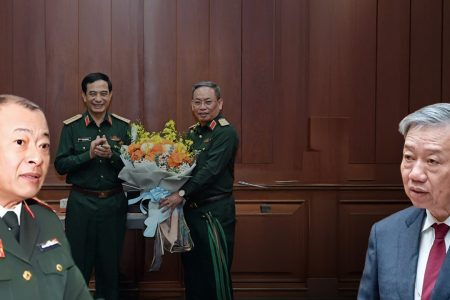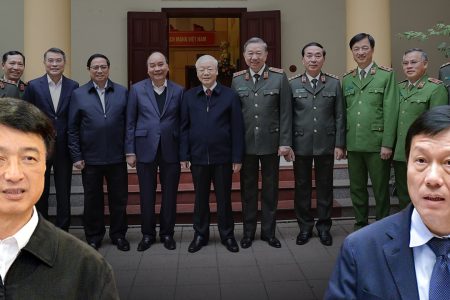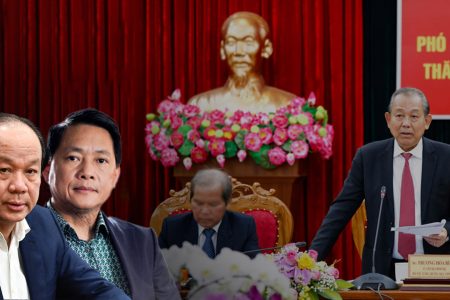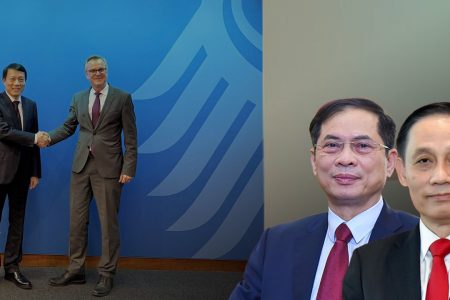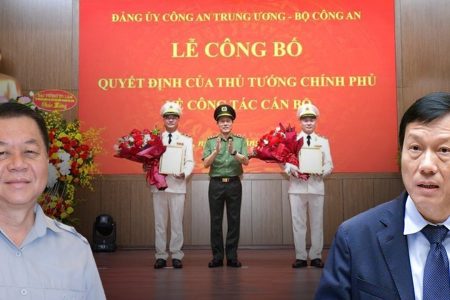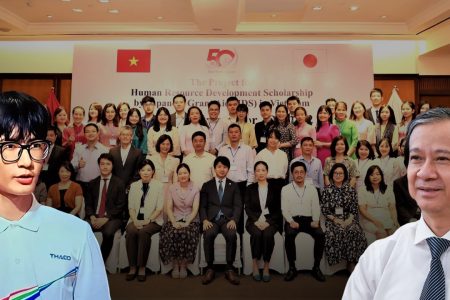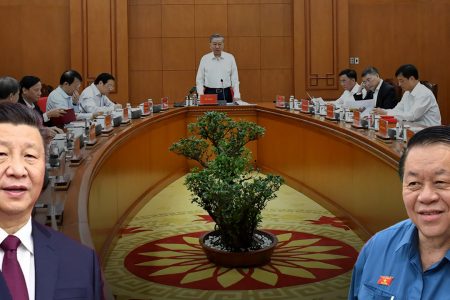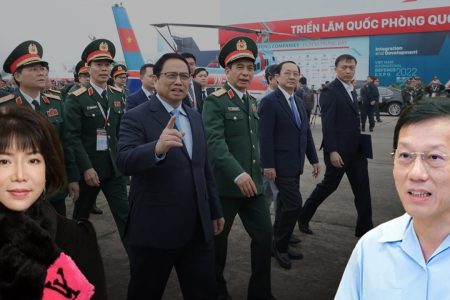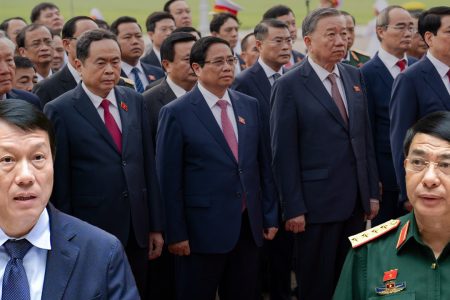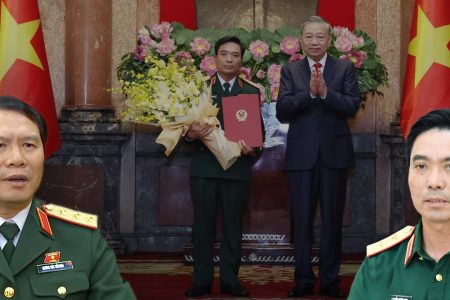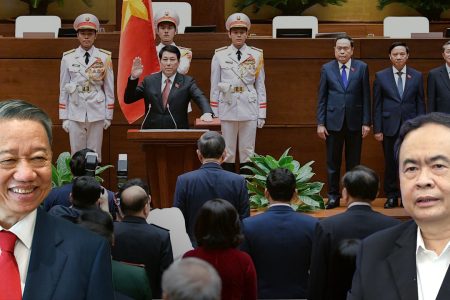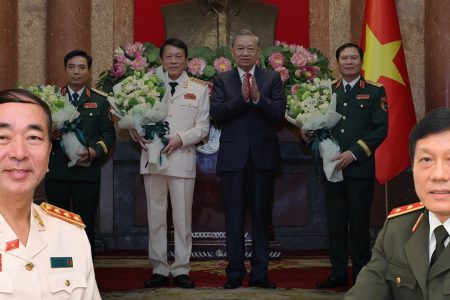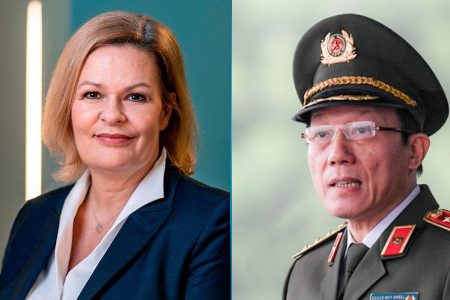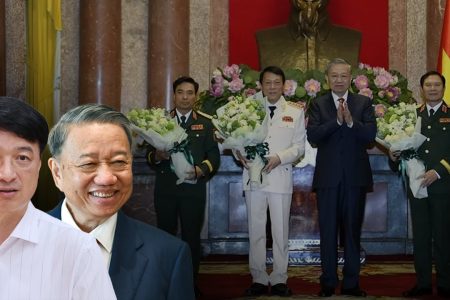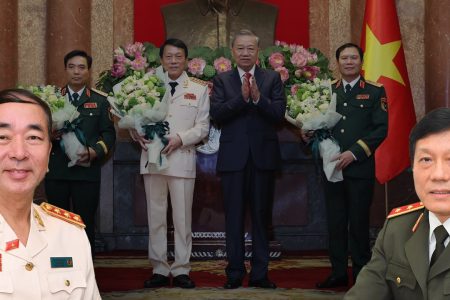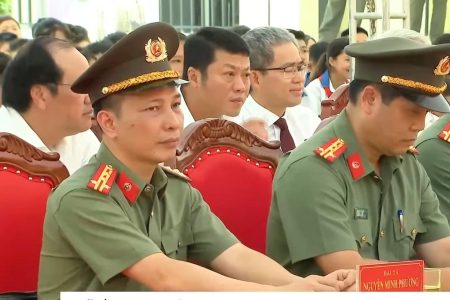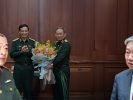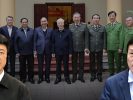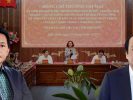Publicity and transparency of official assets are one of the important factors determining the success of anti-corruption work in all countries, including Vietnam.
One of the reasons why the “burning furnace” work of the General Secretary of the Communist Party of Vietnam did not achieve the desired results, partly related to the declaration of assets of leading officials, including civil servants in “sensitive” sectors, prone to corruption, such as police, customs, tax agencies, etc.
The anti-corruption policy of the Communist Party and Vietnamese government in controlling the assets of officials and civil servants is a very important policy. The Party’s and Government’s agencies have issued many regulations, requiring leaders to properly and fully declare changes in assets every year, even every 6 months, for civil servants working in different areas prone to corruption.

However, in Vietnam today, there is a common situation that the declaration of assets is still a formality. The state of officials having finished declaring their assets, then putting them in a drawer, letting them have it. Usually, party officials with positions of authority rarely tell the truth. They hide their assets, or let someone else name them, but the eyes and ears of the people know it very well. And for a long time, the declaration of assets of party members has mainly been aimed at low-level officials in the state apparatus.
Even the most senior leader, General Secretary Nguyen Phu Trong, is not exemplary.
Specifically, on May 6, 2018, right before the opening day of the 7th Plenum of the Central Committee of the Communist Party of Vietnam, term 12th, on the social network Facebook appeared a letter of collective names of the Communist Party member, asked General Secretary Nguyen Phu Trong to disclose his personal assets.
There were 54 people signed the open letter, including former officials and famous intellectuals, such as Mr. Nguyen Trong Vinh, former Ambassador Extraordinary and Plenipotentiary of Vietnam to China, writer Nguyen Ngoc, Dr. Nguyen Quang A… Then, 16 party members, citizens of the Party Committee of Dong Tam Commune, Hanoi, also signed this Letter of Request.
The open letter states, “If General Secretary Nguyen Phu Trong does not make his assets transparent, people will continue to suspect him of being impure and his fight against corruption will be seen as dishonest.”
At the same time, the signatories of the open letter urged Mr. Trong: “…be an example of someone who publishes their “Property Declaration” in the press, electronic portal and the Internet first.” According to them, if Mr. Trong does not disclose his assets to set an example, “People have the right to continue to suspect that you are not clean in the matter of problematic assets. And so despite the legitimate demands of the people… But the requirement to disclose assets is an internal regulation of the Communist Party of Vietnam, decided by the Party Central Committee.”
It is known that the request to publicize the assets of General Secretary Nguyen Phu Trong in 2018, took place in the midst of the “anti-corruption campaign” of Mr. Nguyen Phu Trong in the Ministry of Public Security is reaching its climax. At that time, a series of police generals were arrested, and tried for different crimes.
According to the signatories of the open letter, for a long time, General Secretary Trong himself asserted that: “Before people told [fighting corruption] to only hit from the shoulder, now [according to Mr. Trong] it is right on the head, that is, the central government is stricter than the locality.”
The lack of strict implementation in the declaration of assets of officials, has created a major obstacle, and makes the anti-corruption policy in Vietnam less effective as expected. Sadly, on the afternoon of June 17, 2018, at a meeting with voters in Cau Giay district, Hanoi, General Secretary Nguyen Phu Trong emphasized that the issue of cadre asset declaration is a very difficult and sensitive issue, because it relates to the right to privacy.
It was an evasive statement, refusing to declare assets according to the Resolution of the Politburo and the Secretariat of the Communist Party of Vietnam. If General Secretary Nguyen Phu Trong is really clean, has no corruption, and has no illicit assets, then why not make his assets public, instead resorting to “regarding the right to personal privacy?”
The reason for this avoidance was revealed by the insiders, that is, the General Secretary and his wife own quite a lot of property. The first is the villa at 5 Thieu Quang Street, Hai Ba Trung District, Hanoi, in the name of the owner, Mrs. Ngo Thi Man – the wife of the General Secretary. This villa was liquidated by the Office of the Central Committee of the Party for VND96 million, or less than $4,000, in 2011, currently has a market price of not less than $3.6 million, or 900 times its original value.
In addition, the General Secretary also received gifts of great value, paid tribute by his close juniors. For example, the villa in Ciputra urban area south of Thang Long where the General Secretary’s son – Nguyen Phu Truong – is currently living. This is one of two villas, a gift from Ciputra Indonesia Group, each worth more than $2 million, according to information of Dan Tri newspaper.
Thus, if the General Secretary declares his assets but refuses to disclose them clearly and fully, his juniors will despise him.
“Property declaration” is mandatory for party members. In it, the Communist Party of Vietnam emphasized that, if not truthfully declaring to the organization, it would be a “serious violation.”
General Secretary Nguyen Phu Trong launched a fierce anti-corruption campaign, with a commitment to “no forbidden zones.” As it turned out, as a leader in the highest position, the General Secretary should be even more exemplary in declaring assets. It is also the principle that “all citizens are equal before the law.”
The public is watching the strictness and purity of the Central Anti-Corruption Agency, and considers this an opportunity for the General Secretary to implement transparency, to explain the substance of property ownership, how to worthy of the trust and support of the people.
Tra My – Thoibao.de



